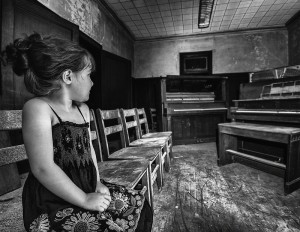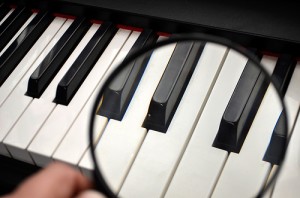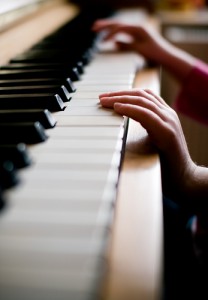By: Aaron Zimmerman
“Should I buy a piano or a keyboard with weighted keys” is one of the most commonly asked questions. The answer I usually give is: It depends, but probably a piano.
Reasons to Buy a Piano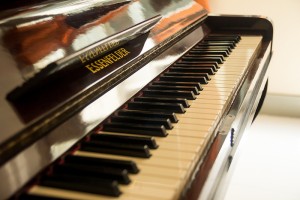
It is more fun. There is something about the experience of playing an acoustic, string-vibrating piano that is more enjoyable, more engaging that a keyboard where sound comes from speakers. Students will practice longer, and be more apt to continue with piano lessons if they are practicing on an acoustic piano.
It is the actual instrument they are learning. Most students who take piano lessons do so because they want to perform the piano in some guise or another (Church, Recitals, entering conservatories, etc). Playing a weighted keys keyboard is a different tactile experience than a piano, no matter how good the keyboard is. The theoretical knowledge will translate just fine, but the piano technique will not. Intermediate students will start playing their pieces poorer in lessons and recitals, because they aren’t used to the feel of a real piano.
It’s not as expensive as you think. Many people think they will gauge interest for a year or two before investing in a real piano. Many piano stores have rent, or rent to own programs that can make owning a real piano easier in this situation. You can also find a decent, affordable piano on online marketplaces like craigslist. If you go this route, enlist the help of your teacher, a pianist friend, or a piano technician to evaluate the piano before purchase.
Pianos have higher resale potential. Pianos tend to go up in value. (Of course, I’m not giving investment advice, just stating my experience). Keyboards are electronic, and will eventually degrade. A well maintained piano will go up in price year over year.
Reasons to buy a keyboard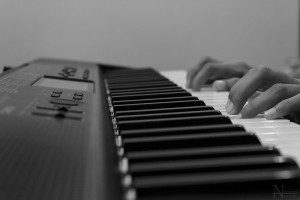
You don’t care about piano technique. If you are just looking for a musical foundation to transfer to another instrument, piano technique isn’t as important.
You have sound or space restrictions. You can plug headphones into a keyboard and practice at any hour without disturbing others in the house or apartment building. If there aren’t any hours in which you can play an acoustic piano, there’s not much point in owning one.
It is not financially viable. When it comes down to it, any instrument is better than no instrument. If your choices are keyboard or nothing, the keyboard wins.
Conclusion
If at all possible, I highly recommend an acoustic piano. There is a higher probability of your child sticking with lessons, and being exited about practicing during the week. You will probably be able to sell the piano in the event that they end up quitting, and it is a beautiful piece of furniture for you living room in the meantime.
photo credit: <a href=”http://www.flickr.com/photos/virgilinojuca/8253770176/”>Jucá Costa</a> via <a href=”http://photopin.com”>photopin</a> <a href=”http://creativecommons.org/licenses/by-nc-sa/2.0/”>cc</a>
